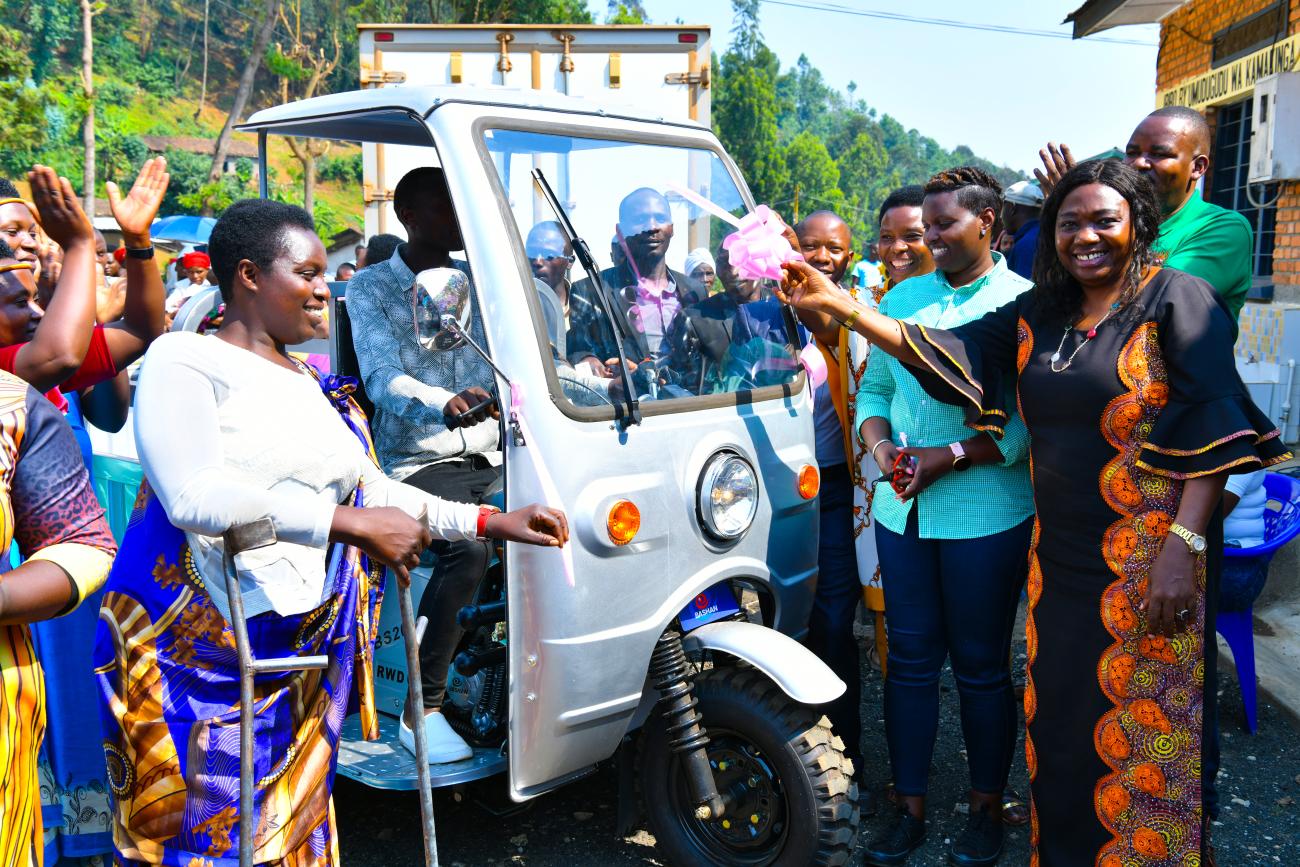TIME-SAVING EFFICIENT KITS TO REDUCE
DOMESTIC CARE WORK FOR RURAL WOMEN
According to a recent baseline study by UN Women Rwanda on unpaid care work in eight districts, on average women work for around 4.1 hours per day compared to men who on average do approximately 1.7 hours on unpaid care and domestic work, particularly those in areas with limited access to regular basic services such as energy, water, and sanitation. To reduce the care demands on women, UN Women through the UN Women’s 3R (Recognize, Reduce, and Redistribute) project on unpaid care work in partnership with Rwanda Development Organisation (RDO), and Institut Africain pour le Development Economique et Social (INADES), distributed energy-efficient kits to over 300 households in Musanze District and 472 households in Rubavu district. This is meant to empower women by removing impediments to their economic empowerment. The kits included improved cooking stoves known as Save80, which saves up to 80% more energy than the normal charcoal stoves using small wood sticks as fuel for cooking. It will save cooking time for women who were already spending countless hours on household chores.
Other kits include heat retention cookers, sprayers, watertanks, harvesting crates, and tri-motor cycles. Beneficiaries of the energy-saving kits include those living with disabilities in vegetable production in Rubavu district, of which, 80% are women in cross-border trade. Marie Louise Mukamanzi, a mother of seven, was very happy to receive the energy-efficient stove which includes a heat retention flask known as a ‘wonderbox’ that keeps the food warm for her children when they return from school. “I am happy to receive the stove because it will reduce my time to warm food and the long hours I spend looking for firewood and cooking,” said Mukamanzi. UN Women Country Representative, Ms. Jennet Kem appreciated UN partners and the Government of Rwanda for their unwavering support. “We hope the kits will be used to improve your wellbeing. I encourage you to work together, save, invest, and do awareness raising to encourage other community members to join cooperatives for collective gains,” said Ms. Kem.







